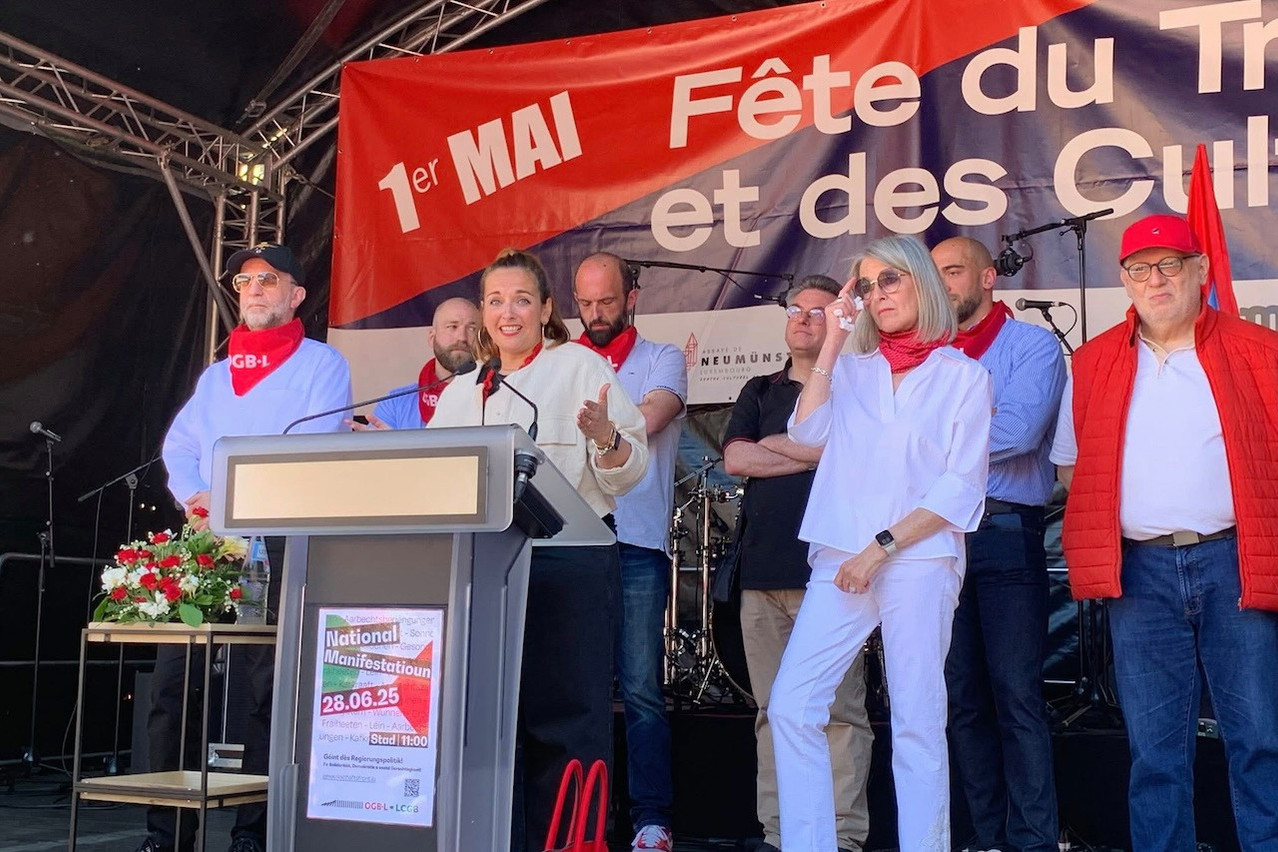With just a few weeks to go before the , and the having disappeared from the agenda, the OGBL and LCGB trade unions took a swipe at the government’s actions and called for unity. But all this without really outlining the lines of joint action.
First to open fire, the national president of the LCGB denounced a government accused of attacking the unions and seeking to dismantle the country’s social model and its pillars of tripartite negotiations, collective agreements, pensions and social security. Dury criticised an alliance between the government and employers--to the detriment of private sector employees--and called for mobilisation and collaboration between the OGBL and LCGB unions to defend social gains, without ruling out recourse to a general strike.
A major sticking point is the desire to give neutral delegations--referred to as employers’ delegations--the right to negotiate and sign collective agreements, effectively depriving the LCGB and the OGBL of “essential” negotiating levers vis-à-vis employers. “The aim is to completely reverse the balance of power within the company,” he insisted. The LCGB leader also returned to the transposition of the directive on adequate minimum wages, “which will worsen the existing situation.” In his view, the government is turning its back on the unions and burying the Luxembourg social model. In his view, this burial opens the door to more flexible working hours, questionable wages and a reduction in pensions. Three issues on which he reaffirmed the LCGB’s positions: “the rejection of Donald Trump-style deregulation and flexibilisation.”
With regard to pension reform, Dury accused the government and employers of creating a panic effect in order to impose solutions that would lead to a “substantial” reduction in pensions, a “solution that is unacceptable to the unions.” As in the union’s , health and social security minister (CSV) came under heavy fire: “A minister who, even today, cannot or will not say what the government’s policy will be on an issue as crucial as pensions must be asking herself whether she is not shamelessly mocking private sector employees and their representatives... A minister who has so far made a name for herself in the press for her populist and poorly thought-out statements on the subject of pensions.”
The question of equal treatment between the civil service and the private sector arises in our country.
Whilst the CGFP does not traditionally organise a demonstration on 1 May, civil servants were very much in evidence in Dury’s speech. Referring to , he drew a parallel between this good agreement and the government’s reluctance to negotiate with the unions. “Basically, the question of equal treatment between the civil service and the private sector arises in our country,” he commented, adding that “the government is not pursuing this policy out of responsibility to the country, but to reach an agreement with the civil service. What counts is the elections, and the government’s policy is defined according to electoral considerations.” And he called for the right to vote in parliamentary elections for all the country’s inhabitants. “Perhaps then our Chamber of Deputies will once again be elected by more people, following the example of the Chamber of Employees, which today is the only body capable of representing all private sector employees and pensioners.”
For Dury, the government and the UEL colleagues are implementing a policy that will inevitably lead to a head-on confrontation with the unions. Long gone is the spirit, if not of concord, then of listening that prevailed of Dury and Nora Back to discuss improving social dialogue.
, but for what purpose and--above all--to what end? A joint national demonstration is planned for 28 June. Will this be enough to change the government’s policy? If the government does not come to its senses, Dury does not rule out a hard social conflict and “if necessary, a general strike.”
A few minutes later, , the general secretary of the OGBL, spoke from Neimënster Abbey, where the OGBL has met to celebrate Labour Day for the past 19 years. And whilst she was just as upbeat and combative as Dury, she remained more reserved on the issues of equal treatment between the civil service and the private sector as well as on the possibility, if not of a social conflict, of a call for a general strike.
Stop with this government policy!
However, Back stressed the closeness between the two unions. “Although our LCGB colleagues are having their own celebration today in Remich, we are very close in spirit.” Like Dury, she insisted at length on the need for trade union solidarity between the OGBL and the LCGB. This solidarity will be demonstrated physically at the joint demonstration on 28 June “to defend collective agreements, working conditions, the right to strike, occupational health, industry, public services, tax justice, equality between residents and cross-border commuters, pensions, the right to housing, environmental protection, human rights and the right to demonstrate.” Back strongly criticised the social policy of (CSV), accusing the government of wanting to weaken workers’ rights and undermine social dialogue. “Stop with this government policy! What we need now is more democracy, more social justice and more solidarity. And that’s also what our May Day represents,” she hurled at the prime minister.
Back outlined the various red lines not to be crossed--red lines identical to those of the LCGB--namely, any reform of the legislation on collective agreements which would weaken the national unions, which are the only ones entitled to negotiate them; any change to the rules on working time; the introduction of a waiting period for sick leave; and pension reform that would prefer to reduce benefits rather than increase contributions.
And she has set a date of 28 June.
This article was originally published in .


